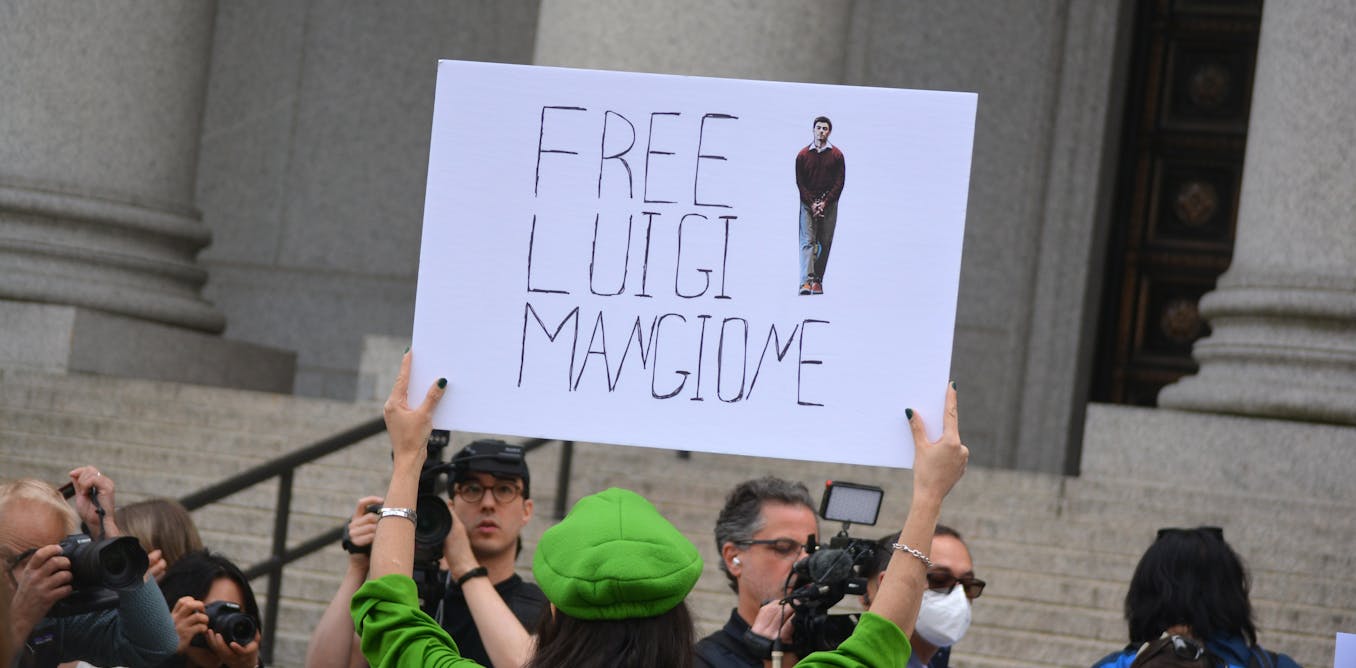Science
Workplace Burnout Linked to Rise in Extremist Attitudes, Study Finds

Luigi Mangione’s arrest for allegedly murdering the CEO of UnitedHealthcare in December 2024 has drawn significant attention, particularly due to the unexpected public support he received. On April 25, 2025, protests erupted outside of his arraignment in New York City, with polls indicating that 41% of young adults found the murder justifiable. This response raises a critical question: what drives individuals to endorse such extreme violence? New research published in the special issue “Understanding Violent Extremism” of the APA Journal Psychology of Violence suggests that workplace burnout may play a significant role in shaping these attitudes.
Mangione’s manifesto cited “corruption and greed” as primary grievances, a sentiment that resonates with many as dissatisfaction with modern work environments grows. The study indicates that broader patterns of systemic frustration and perceived corruption are closely linked to burnout, potentially leading individuals to justify violent actions against those they perceive as responsible for their distress.
The Burnout to Extremism Pipeline
The research involved daily surveys from over 600 employees, documenting their burnout symptoms, emotional states, and attitudes towards violent extremism. Observations revealed that on days when employees experienced heightened burnout, they expressed increased sympathy for extremist ideas, including justifying violence against perceived injustices. The emotional toll of burnout often manifests as negative feelings such as fear, sadness, shame, and guilt. To counteract these emotions, some individuals may gravitate towards extremist ideologies as a means of reclaiming a sense of purpose.
Three established psychological theories help explain this phenomenon. General Strain Theory posits that daily frustrations can lead to violent extremism by fostering negative emotions. The existential model of burnout connects burnout with a loss of meaning in work, while Significance Quest Theory suggests that when individuals feel their personal significance erodes, they may turn to radical beliefs to restore that sense of meaning. Together, these theories indicate that burnout reflects a failed search for meaning, which can push individuals towards extremist ideologies.
Understanding the Implications of Burnout
It is crucial to clarify that the study does not claim that all individuals experiencing burnout will engage in extremist violence. Instead, it highlights how burnout can subtly shift attitudes towards violence, normalizing acceptance of extremist views. This distinction is vital; radicalization of opinion, even without action, can threaten democratic values and social cohesion.
Currently, approximately three in four employees experience workplace burnout. This statistic reveals a significant portion of the workforce grappling with emotional strains that can lead to extremist ideologies. Although most individuals will not resort to violence, a society increasingly tolerant of extremist attitudes risks normalizing destructive behaviors, undermining both democratic values and workplace cohesion.
Organizational support emerges as a critical protective factor against these extremist tendencies. Employees who feel valued by their organizations and believe their well-being is prioritized are less likely to adopt extremist ideologies, even when facing burnout. However, support is most effective before negative emotions set in. Once employees reach a certain emotional threshold, additional support may have limited impact on preventing the escalation towards violent extremist attitudes.
To effectively combat burnout, employers must proactively invest in prevention strategies. This includes fostering fairness and transparency in the workplace, ensuring employees feel recognized, training managers to identify early signs of burnout, and establishing open channels for feedback.
Broader societal perceptions of injustice can also exacerbate extremist sympathies, particularly among those already mentally exhausted. For instance, any moves to pursue the death penalty for Mangione to serve political aims could deepen feelings of systemic unfairness, further fueling radical views.
The broader implications of workplace burnout extend beyond individual organizations. Ignoring employee burnout creates a breeding ground for ideological radicalization, which poses risks not only to productivity but also to societal stability. As both workplaces and societies confront rising extremist sentiments, it becomes essential to recognize and address the psychological triggers at play.
Burnout signifies more than mere workplace exhaustion; it highlights a profound existential vulnerability. Employees require support not only to enhance their job performance but to maintain a sense of meaning, stability, and connection in their lives. If workplaces fail to provide this, extremist ideologies may readily step in to fill the void, with repercussions that extend well beyond the office environment.
-

 Entertainment2 months ago
Entertainment2 months agoIconic 90s TV Show House Hits Market for £1.1 Million
-

 Lifestyle4 months ago
Lifestyle4 months agoMilk Bank Urges Mothers to Donate for Premature Babies’ Health
-

 Sports3 months ago
Sports3 months agoAlessia Russo Signs Long-Term Deal with Arsenal Ahead of WSL Season
-

 Lifestyle4 months ago
Lifestyle4 months agoShoppers Flock to Discounted Neck Pillow on Amazon for Travel Comfort
-

 Politics4 months ago
Politics4 months agoMuseums Body Critiques EHRC Proposals on Gender Facilities
-

 Business4 months ago
Business4 months agoTrump Visits Europe: Business, Politics, or Leisure?
-

 Lifestyle4 months ago
Lifestyle4 months agoJapanese Teen Sorato Shimizu Breaks U18 100m Record in 10 Seconds
-

 Politics4 months ago
Politics4 months agoCouple Shares Inspiring Love Story Defying Height Stereotypes
-

 World4 months ago
World4 months agoAnglian Water Raises Concerns Over Proposed AI Data Centre
-

 Sports4 months ago
Sports4 months agoBournemouth Dominates Everton with 3-0 Victory in Premier League Summer Series
-

 World4 months ago
World4 months agoWreckage of Missing Russian Passenger Plane Discovered in Flames
-

 Lifestyle4 months ago
Lifestyle4 months agoShoppers Rave About Roman’s £42 Midi Dress, Calling It ‘Elegant’









